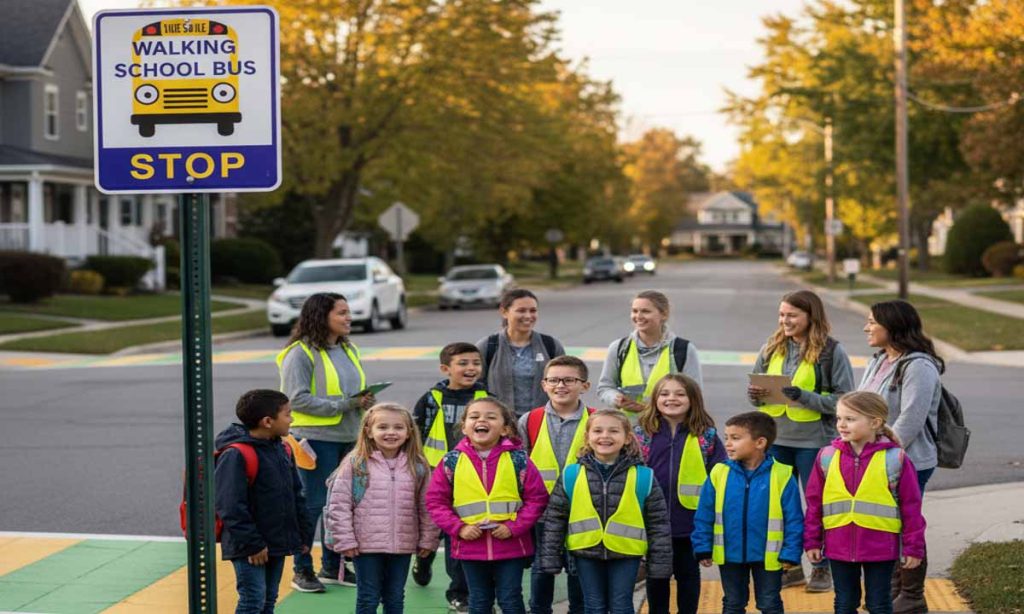Mentorship programs offer invaluable support and guidance to children, helping them navigate their educational and personal journeys. Getting involved in such programs can be a rewarding experience, both for the mentor and the mentee. Here’s a guide on how to participate in and make the most of mentorship programs for kids.
1. Understanding the Impact of Mentorship
Benefits for Kids: Mentorship provides kids with positive role models, academic support, and personal development opportunities. It helps build self-confidence, improve social skills, and set educational and career goals. After-school programs can be a great setting for mentorship, offering additional support outside of regular school hours.
Role of a Mentor: As a mentor, you act as a guide, supporter, and friend. Your role includes providing advice, encouragement, and practical help. Mentors often help mentees with schoolwork, explore interests, and develop life skills.
Types of Mentorship Programs: Mentorship programs can vary widely, including one-on-one mentoring, group mentoring, academic tutoring, and career exploration. Programs may be organized through schools, community centers, or non-profit organizations.
2. Finding the Right Mentorship Program
Research Local Programs: Start by researching mentorship programs in your area. Check with local schools, community organizations, or online platforms dedicated to mentoring. Look for programs that align with your interests and skills.
Assess Program Goals: Evaluate the goals and structure of the programs you are interested in. Ensure that they match your availability, expertise, and the age group you wish to mentor.
Check Requirements: Review the requirements for becoming a mentor, which may include background checks, training sessions, and a commitment to a certain time period. Ensure you meet these requirements before applying.
Connect with Program Coordinators: Reach out to program coordinators for more information. They can provide details about the mentoring process, expectations, and how you can get involved.
3. Preparing to Be a Mentor
Understand the Needs of Your Mentee: Learn about the needs and interests of the child you will be mentoring. This helps you tailor your approach and provide relevant support and guidance. If you are part of a community tutoring program, understanding these needs is crucial for effective mentoring.
Prepare for Training: Many mentorship programs offer training to help you understand your role and responsibilities. Participate in these sessions to prepare yourself for effective mentoring.
Set Goals and Expectations: Establish clear goals and expectations with your mentee and the program coordinators. This helps create a structured and purposeful mentoring relationship.
Develop Communication Skills: Effective communication is key to a successful mentoring relationship. Practice active listening, empathy, and clear communication to build a strong connection with your mentee.
4. Building a Strong Mentoring Relationship
Create a Supportive Environment: Build a positive and supportive environment where your mentee feels comfortable sharing their thoughts and challenges. Encourage open communication and mutual respect.
Set Regular Meetings: Establish a regular schedule for meetings to ensure consistent interaction. This helps maintain the relationship and provides ongoing support and guidance.
Be a Positive Role Model: Demonstrate positive behaviors and attitudes that you want to instill in your mentee. Your actions and values can greatly influence their development.
Encourage and Motivate: Provide encouragement and motivation to help your mentee set and achieve their goals. Celebrate their successes and offer constructive feedback when needed.
5. Evaluating and Enhancing the Mentoring Experience
Regular Check-Ins: Regularly assess the progress of the mentoring relationship. Check in with your mentee to understand their needs and adjust your approach as necessary.
Seek Feedback: Solicit feedback from your mentee and the program coordinators to improve the mentoring experience. Be open to suggestions and willing to make adjustments.
Reflect on Your Experience: Take time to reflect on your mentoring experience and its impact on both you and your mentee. Consider how the experience has enriched your life and what you have learned.
Stay Committed: Commit to the mentoring program for its duration. Your consistent presence and support can make a significant difference in your mentee’s life.
6. Expanding Your Involvement
Volunteer for Additional Roles: Consider volunteering for additional roles within the program, such as organizing events or leading workshops. This expands your impact and enhances the mentoring experience for other participants.
Promote the Program: Encourage others to get involved in mentorship programs. Share your experiences and the benefits of mentoring to inspire more people to contribute to the program.
Support Program Growth: Contribute to the growth and development of the mentorship program by providing feedback and suggesting improvements. Your input can help enhance the program’s effectiveness and reach.
Conclusion
Mentorship programs for kids offer a valuable opportunity to make a positive impact on young lives. By finding the right program, preparing effectively, building strong relationships, and evaluating your experience, you can contribute significantly to a child’s growth and development.






